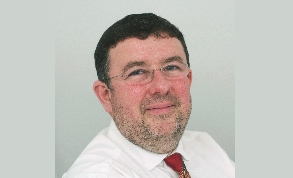Budget 2020: chancellor addresses pension taxation crisis
Delivering his Budget 2020 speech, chancellor Rishi Sunak said he had listened to concerns that the pensions tax system was preventing doctors from taking on more hours. In response both the tapered annual allowance thresholds are being raised by £90,000.
This means that the threshold income will be set at £200,000, meaning that individuals with income lower than this will not be affected by the tapered annual allowance. And the annual allowance will only begin to taper down for individuals with an ‘adjusted’ income above £240,000.
‘Based on their vital work for the NHS, that will take around 98% of consultants and 96% of GPs out of the taper altogether,’ the chancellor said. He also announced a reduction in the minimum annual allowance to £4,000, which would only impact those with incomes over £300,000.
Proposals to offer greater pay in lieu of pensions for senior clinicians in the NHS pension scheme will now not be taken forward.
Importantly the changes apply to all workers and so will also benefit senior managers in the NHS. The HFMA and other bodies had called for a solution that treated all staff equally, highlighting that the original taper proposals were also leading senior managers to reduce hours or seek early retirement.
Vishal Sharma, chair of the BMA pensions committee, said the solution was long overdue. ‘The vast majority of doctors are now removed from the effect of the taper and will no longer be in a situation where they are paying to go to work,’ he said. However he added that the announcement was not everything the BMA had asked for with the annual allowance remaining ‘unsuited to defined benefit schemes’.
Chris Hopson (pictured), chief executive of NHS Providers said it was particularly good to see the change also benefitting senior leaders and non-clinicians and he acknowledged the significant investment of £2.1bn over five years.
‘In the coming days, we need to listen carefully to feedback from trust leaders on the likely impact of this policy,’ he said. ‘It will be important to understand whether this change will enable the most experienced clinicians to predict whether they will receive an annual pension tax bill, and how large that will be.
‘We will also want to check that senior staff will not be prevented from taking on promotions and extra responsibility, and that local trusts can address these issues through local flexibilities.’
NHS Employers described the move as a significant step in reforming pensions taxation, providing certainty for the overwhelming majority of NHS employees. ‘Employers will also hope that this announcement reassures clinical colleagues so that they can agree to undertake additional work without the perverse consequences that have resulted in recent years,’ said the body’s chief executive Danny Mortimer.
Related content
We are excited to bring you a fun packed Eastern Branch Conference in 2025 over three days.
This event is for those that will benefit from an overview of costing in the NHS or those new to costing and will cover why we cost and the processes.